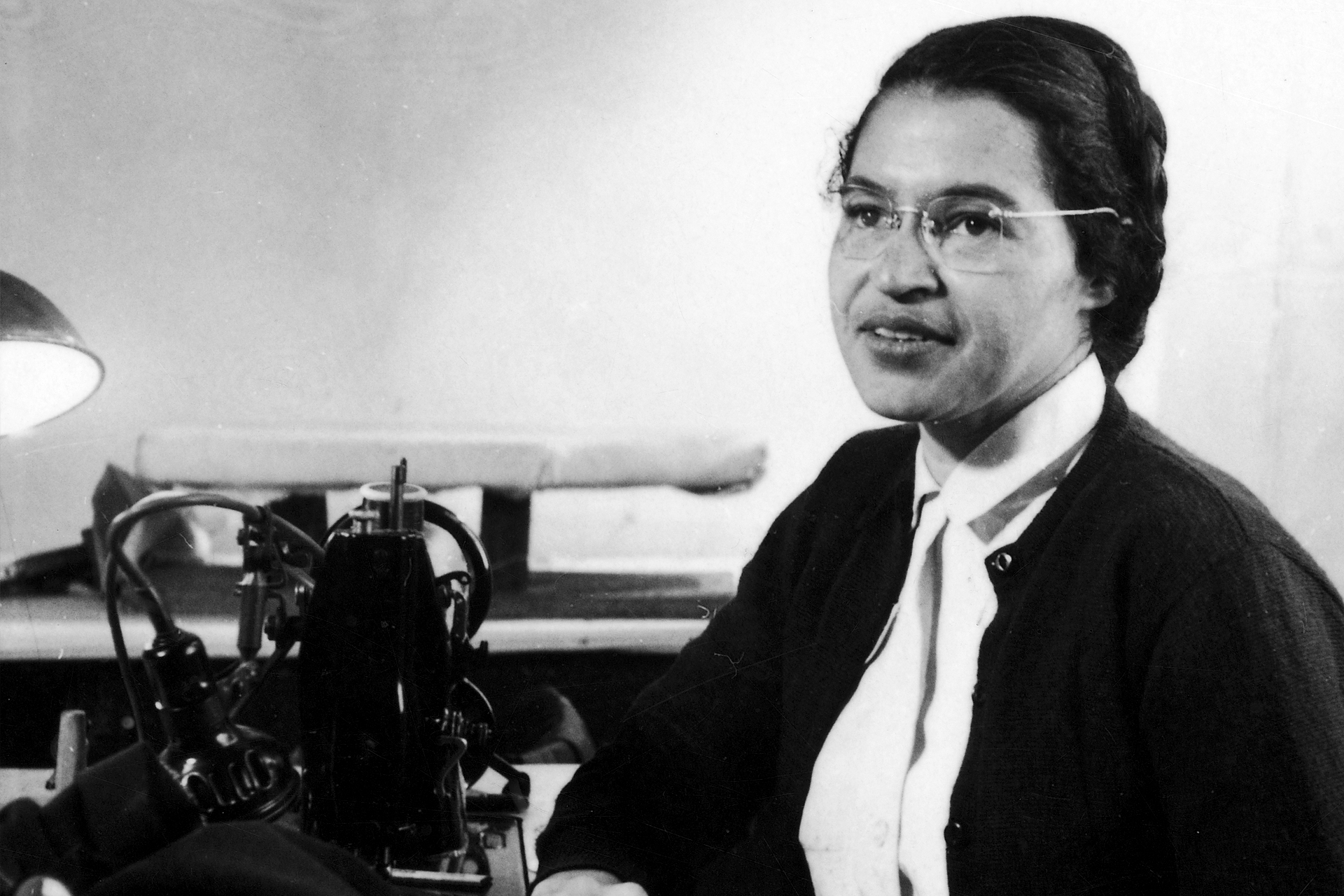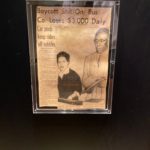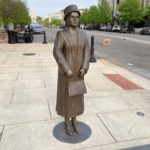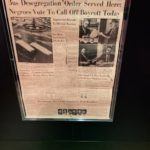Rosa Parks has been on my radar for some time as I have learned from various sources over the years that she was a far cry from the low key and mild mannered perception that most people seem to have of her. I understood, for instance, that Rosa Parks was a rebel at heart who had fought the good fight for many years before refusing to give up her bus seat in 1955. She was also a longtime vegetarian, so you can imagine how excited I was at the prospect of learning more about her at where else, but the Rosa Parks Museum in Montgomery, Alabama, the birthplace of the civil rights movement!
I enjoyed the museum tour, and I would recommend it as the use of technology is impressive, and my admiration and love for Dr. Martin Luther King, Jr., only deepened when I learned more about his home being bombed in 1956 when he had a newborn baby girl and was the president of the Montgomery Improvement Association (MIA).
However, there was very little information on Rosa Parks and her lifelong work as an activist in promoting peace and justice. I was also hoping to learn more about her dietary choices as well. I asked the nice folks at the museum if they had any additional information on Rosa Parks, and they just kind of shrugged and suggested a couple of books.
A better title for the Rosa Parks museum might be The Montgomery Bus Boycott, and the Birth of the Civil Rights Movement Museum. They could then keep the title of The Rosa Parks Museum and this time, focus more on Rosa Parks, and who she was and how she inspired generations of people.
“For over forty years, I’ve been vegetarian. Growing up, my family had little money—I had health problems early in life because of poor nutrition. Eating healthy is a priority for me.” – Rosa Parks
As per PETA, “After becoming a leader to help end segregation, Parks soon made the natural transition to wanting to help others who needed to be freed from slavery: animals. She was a vegetarian for more than 40 years! Many civil rights leaders, past and present, have realized that as long as one form of prejudice exists, no form of prejudice can be completely done away with, which is why civil rights and animal rights are so deeply connected.”
The Zinn Education Project is an excellent and trusted resource, and their website had this to share as well: “…Americans are convinced they know this civil rights hero. In textbooks and documentaries, she is the meek seamstress gazing quietly out of a bus window — a symbol of progress and how far we’ve come. When she died in 2005, the word “quiet” was used in most of her obituaries and eulogies. We have grown comfortable with the Parks who is often seen but rarely heard….That image of Parks has stripped her of political substance. Her “life history of being rebellious,” as she put it, comes through decisively in the recently opened Rosa Parks Collection at the Library of Congress. It features previously unseen personal writings, letters, speech notes, financial and medical records, political documents, and decades of photographs…There, we see a lifelong activist who had been challenging white supremacy for decades before she became the famous catalyst for the Montgomery bus boycott. We see a woman who, from her youth, didn’t hesitate to indict the system of oppression around her. As she once wrote, “I talked and talked of everything I know about the white man’s inhumantreatment of the negro…Parks was a seasoned freedom fighter who had grown up in a family that supported Marcus Garvey and who married an activist for the Scottsboro boys. She joined the Montgomery chapter of the NAACP in 1943, becoming branch secretary. She spent the next decade pushing for voter registration, seeking justice for Black victims of white brutality and sexual violence, supporting wrongfully accused Black men, and pressing for desegregation of schools and public spaces. Committed to both the power of organized nonviolent direct action and the moral right of self-defense, she called Malcolm X her personal hero…Much of the memorializing of the Montgomery bus boycott and the civil rights movement misses this side of Parks. Instead, we’ve become content to celebrate her “quiet” bus protest as a historic triumph in a movement that has long since run its course. But listening to Rosa Parks forces us to reconsider our view not only of our civil rights history, but also the demands of our civil rights present. We are forced to reckon with the fact that today’s rebels could be tomorrow’s heroes.”
I am not sure why the Rosa Parks Museum shies away from giving us the true, and inspiring story of Rosa Parks. Nevertheless, I would still recommend a visit to the Rosa Parks/Bus Boycott Museum in Montgomery, Alabama. I learned a lot, and enjoyed my visit. 🙂
Click here to learn more about Rosa Parks from the Zinn Education Project.
Click here to learn more from PETA on Rosa Parks.
Click here to learn more from PETA2.
Click here for the Rosa Parks Museum in Montgomery, Alabama.












